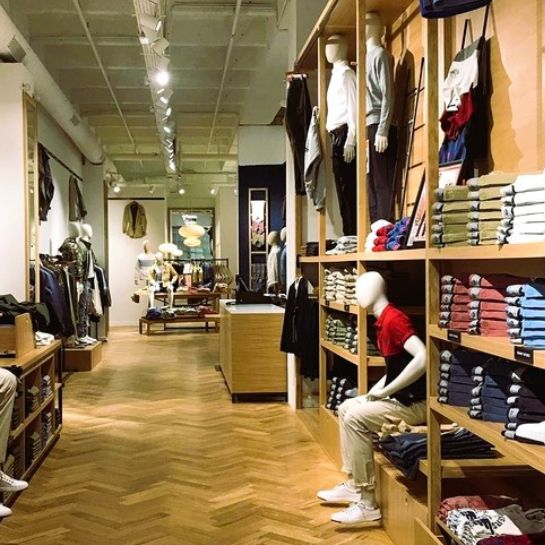20.06.2024
Innovative technologies, sustainable development, and changing consumer expectations are driving dynamic changes in the retail furniture manufacturing industry. From smart solutions to eco-friendly production – discover how innovations are redefining the way we perceive and use furniture in commercial spaces.
Retail furniture leaves a significant global carbon footprint. With the rising demand for ecological and social responsibility, the industry is shifting towards more sustainable solutions in manufacturing.
These solutions include sourcing environmentally friendly materials for furniture production and implementing recycling and upcycling processes that optimize the use and lifespan of resources, partly addressing the issue of raw material shortages. For example, old wood fibers, polyethylene terephthalate (PET) bottles, as well as bamboo, cotton, and algae, can be used in the production process.
Furniture manufacturers constantly face logistical challenges such as long-distance deliveries, driver shortages, and high transportation costs. Technologies are helping reduce costs and improve delivery efficiency. For instance, GPS and Radio-Frequency Identification (RFID) enable precise tracking of furniture from the manufacturer to the customer. Additionally, companies use the Internet of Things (IoT) and Artificial Intelligence (AI) to optimize vehicle routes, speeds, and fuel consumption.
Management information systems further enhance the efficiency of various processes and streamline personnel management during the delivery phase. Warehouse management platforms and automated material handling equipment increase supply chain efficiency. Furniture companies also use electric vehicles, renewable energy sources, and hydrogen fuel cells to reduce the carbon footprint of furniture logistics.
Companies are implementing AI-powered robotics, such as Autonomous Mobile Robots (AMR), and other solutions to automate furniture production. Robots equipped with computer vision and AI algorithms can perform complex tasks such as cutting, shaping, and assembling furniture components with high precision. For example, automated drills ensure holes are consistently precise in depth and angle, leading to consistent quality and reduced waste. Automated systems also monitor production lines in real-time to proactively detect and resolve issues, boosting productivity.
Stores increasingly prefer furniture that can be easily configured and adapted to changing spatial needs. Therefore, there is a growing demand for furniture that is easy to assemble and disassemble—a solution particularly useful for frequently changing store layouts. This trend also involves inclusivity, adapting furniture to various body sizes and types, as well as different types of disabilities.
These trends reflect changing consumer expectations and technological development, emphasizing ecology, flexibility, and the use of modern technologies.
Ergo Store has over 15 years of experience in retail furniture manufacturing. We provide comprehensive services, from concept development, visualization, prototyping, production, to on-site installation and final assembly of furniture in the location. We regularly monitor new trends to tailor our solutions to contemporary challenges and customer expectations.

12.02.2026
Dockers is one of the global apparel brands that Ergo Store has supported for years, delivering brick-and-mortar retail spaces across various parts of Europe. What are the most distinctive features of the brand’s store concept, which until 2025 was part of Levi Strauss & Co.?